Edge Magazine Presents: Game Changers – Microsoft enters the console race
Edge magazine investigates the dramatic origins of the original Xbox and how an internal team 'hoodwinked' Bill Gates into launching Microsoft's first console
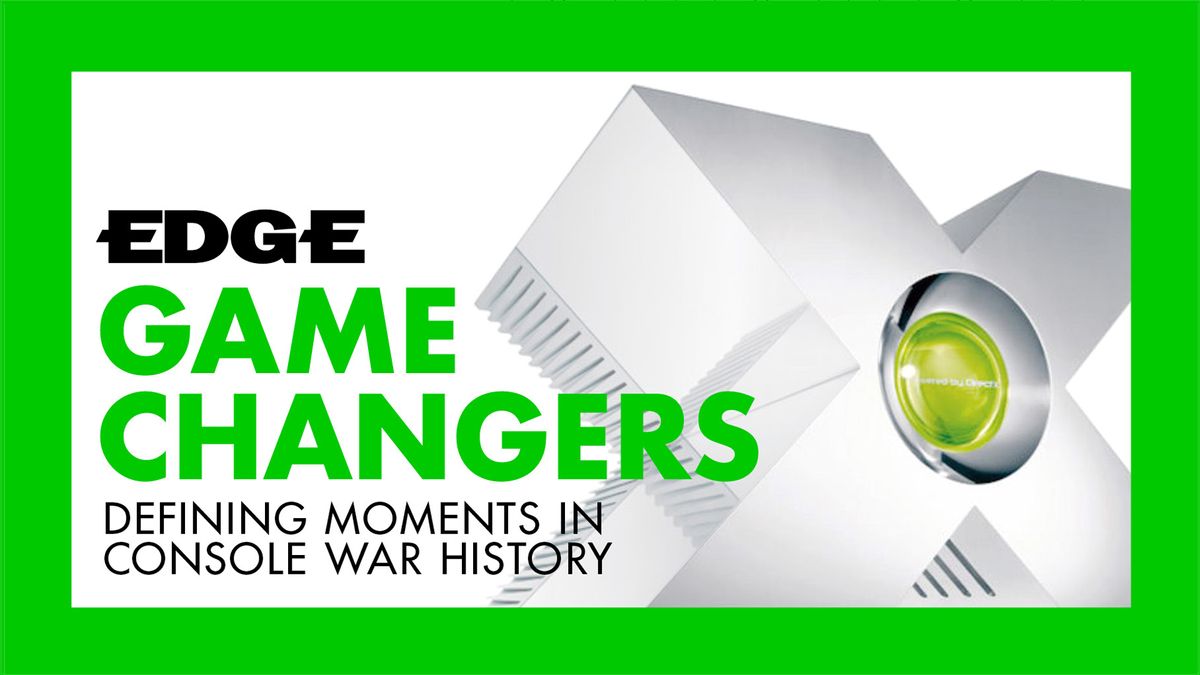
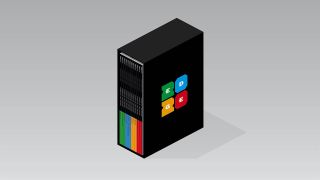
Presented by Edge, Game Changers is a new editorial series that dives deeper into pivotal moments from console war history, from the original PlayStation launch in 1994, to Xbox’s billion-dollar red ring of death rescue plan. Each episode recaps the industry at the time (The Background), replays key moments as Edge magazine reported them (The Moment), delivers present-day interviews with those involved (The Inside Story) and considers the event's historical impact (What Happened Next?). A new episode of Game Changers will debut at 5pm GMT / 1pm EDT every day this week.
In the space of two decades, Microsoft has become one of the videogame industry's biggest players. Now, as it gears up for the launch of two new Xboxes, it has started to question the console paradigm itself. Nintendo may be the master of bespoke hardware, and Sony the most obvious competition, but Microsoft's games business is now both hardware and cross-party software.
That may seem somehow inevitable – after all, this company has deeper pockets than almost any other, and because of that Xbox has been seen as brute-forcing its way into the market. Which is of course nonsense: in the videogame business, budgets don't count for much if the product sucks.
Here, we go back to the very start of Xbox, an idea that met with internal opposition, politicking, and at times outright ridicule – inevitable, perhaps, within a company of Microsoft's vast scale, with so many stakeholders in play. A small internal team, however, proved both capable and determined enough to imagine a new kind of console – one that Sony's PlayStation team might have seen coming, but by that point it wouldn't matter.
Edge chronicled the early days of Xbox in detail, and here we revisit what the key players said at the time. Then we speak to Seamus Blackley, the man who had the original idea, about the battle to make the console real and why, against considerable odds, Microsoft co-founder Bill Gates took the gamble.
The background: Why did Microsoft decide to enter the console market?
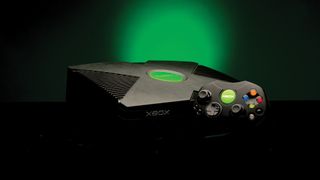
Just what was it that led to Microsoft launching a game console in 2001? The business justifications are tucked away in a million confidential emails, but we know that the market was ripe for it.
The Xbox (written as "X-Box" and "X-box" early on) came out of DirectX, Microsoft's suite of programming interfaces commonly used in PC game development. Four DirectX team members – Kevin Bachus, Seamus Blackley, Ted Hase and Otto Berkes – jumped on Bill Gates' suggestion that the PlayStation 2 was a threat to Windows PCs, and that Microsoft needed something that could compete.
Having approached Sony about creating the PS2 system software, and having done the same for Sega's Dreamcast, Microsoft's choice of codename for the console project – Midway – was a deliberate statement, one that may seem problematic in a more enlightened age, referring as it does to the World War II battle in which US forces defeated the Japanese.
Sign up to the 12DOVE Newsletter
Weekly digests, tales from the communities you love, and more
The Xbox project quickly attracted Microsoft's Windows software architect Nat Brown and head of gaming Ed Fries, who championed the inclusion of a hard drive in the console. Using PC components would, it was believed, eliminate barriers for software developers in making games for the console and set the machine apart, both in terms of its power and its features. Online access would be a big selling point, too, leading to the launch of Xbox Live in 2002.
One thing about the original Xbox that certainly stood out was its large controller, nicknamed The Duke. The device's design came about as a result of manufacturer Mitsumi Electric refusing to make a two-part stacked circuit board for Microsoft, since it was already building the same thing for Sony's DualShock 2. Microsoft had to make do with something almost three times as large. The Duke was never launched in Japan, where testers loathed the bulky design. The smaller Controller S, which used a more compact board, was bundled with Japanese consoles, and eventually morphed into the familiar Xbox controller we know today.
The moment: What did Edge magazine have to say about the Xbox ahead of launch?
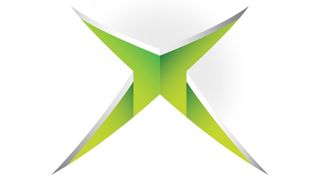
"Deep inside Microsoft's HQ," revealed Edge issue 88 (September 2000), "Bill Gates has just given the final approval on X-Box". Put like that, Microsoft's mild-mannered chairman and chief software architect (he'd stepped down as CEO in January that year) sounds more like a cartoon villain than the man who would one day help to wipe out polio in West Africa. That, and the hyphen, aren't the only things to have changed.
"For the first time ever, a piece of hardware is being created from scratch by guys who have spent their lives developing software," said Edge, rather reverently. Microsoft entered the console race, Seamus Blackley (director of the X-Box Advanced Technology Team) claimed at the time, out of necessity. "What does the consumer want most? Good games. How do we get that? By giving the developers all the tools and hardware they need to do this. Developers and publishers told us what they wanted, [and] we are in a unique position to provide support and insight. Essentially, the X-Box is a big software business, with this unfortunate hardware aspect we had to learn how to deal with." Microsoft's shopping spree since, scooping up 22 game studios plus Zenimax, means it's bigger business nowadays than perhaps Blackley could have imagined at the time.
Blackley's tone throughout Edge's coverage is one of slight amazement, and his colleague Ed Fries (VP of games publishing) is on a similar footing: "Is there another company in the world that could do this? I don't think so, because it takes a bunch of different pieces, especially the software. The marketing, developer support, worldwide sales and distribution..."
Microsoft's original plan was to launch Xbox in autumn 2000 to go head to head with PlayStation 2. Bill Gates had other ideas, however, and the console would launch in the same year Sega announced its plans to go third-party-only. It had been in the works for several years before that, though. "It came to me on a plane, of all places," Blackley recalled. "I was looking at PC hardware coming out at the end of the year and I started thinking, 'Good lord, we could make just one monstrous son-of-a-bitch game console with one of these things'."
"We [realised we] could produce something just like a console, but with all the advantages of the PC," explained Kevin Bachus, who at the time was director of third-party at Microsoft. Bachus and Blackley took the idea to Fries in January 1999, and added J Allard to the team as general manager soon after. Allard had just fallen off a racing bike and broken his ankle, but started working on the Xbox OS anyway. The group had three-monthly meetings with Gates and Microsoft CEO Steve Ballmer. "Much of the process was deciding what the X-Box was not going to be," Fries recalled.
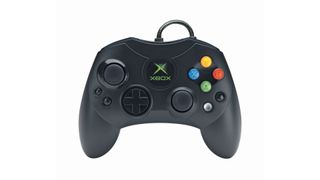
"The console wasn't what Gates and Microsoft originally expected, but it also upturned the way Microsoft had always worked"
"Each time the group decided to further focus the X-Box on gaming," wrote Edge, "it faced another corporate battle." Ideas such as compatibility with PC games, productivity suites and Web TV were dropped. But it was the game development process itself that most needed to change, according to Blackley. "Why throw out everything you know each time a new system comes out?" he asked. "From a development cost point of view, and a quality point of view, it just doesn't make any sense."
"We have an opportunity," said Fries. "You decide to do something like this without the history [of a Sony or Nintendo], you can take a fresh look at it. We have an opportunity to fix a lot of what is wrong."
Gates and Ballmer gave the thumbs-up to the Xbox project on Valentine's Day, 2000, but the chairman still wasn't happy with the lack of PC compatibility. "When Bill first heard that the X-Box wasn't going to be PC compatible," the magazine wrote, paraphrasing Microsoft team members, "he supposedly started leaning over the table at Allard, saying something to the effect of, '[Expletive]... let me get this straight... [expletive]... it isn't going to be PC compatible'. Still, Allard and the crew wouldn't budge."
Xbox did benefit from being built of PC parts, however. Competition in the sector – something Microsoft had been accused of stifling in the Internet Explorer antitrust case – had forced chip prices down, meaning the Xbox could hit the market at a consumer-friendly price. The console wasn't what Gates and Microsoft originally expected, but it also upturned the way Microsoft had always worked. "We were selling a new product concept and a new playbook," said Allard, "a totally new business model."
Issue 88 saw Edge in pensive mood, thinking about changes in the game industry, from its own hailing of Rise Of The Robots on its cover (spoiler: it didn't review well) to Sony's plans to turn PS2 into an entertainment hub which wouldn't see true fruition until PS3. "Microsoft will be splashing out over half-a-billion dollars like a high-roller in Vegas in an effort to carve out a niche for itself. Who could have foreseen the creator of some of the world's most reviled software being now poised to offer a dynamic, genuinely viable [videogame] platform?"
"The X-box has all the advantages of a PC heritage... but none of the downsides of the PC," said Climax CEO Karl Jeffrey in the same issue. Today, with both Microsoft and Sony releasing consoles based on PC architecture for the second generation running, we can appreciate those initial meetings with Gates for their importance, at the heart of redefining the fundamental nature of the videogame console.
The inside story: Seamus Blackley, former director of the X-Box Advanced Technology Team, reflects on Xbox's earliest years
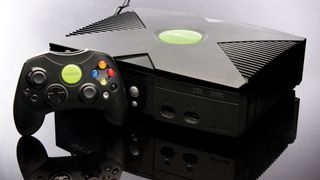
"Bill Gates is a guy who takes huge risks and he has a great imagination. He is an adventurer, he's an intellectual adventurer, and there is no bullshit around him – he doesn't have time or tolerance for it."
Seamus Blackley
Seamus Blackley, director of the X-Box Advanced Technology Team during the Xbox launch:
"There's a kind of a disconnect between the Microsoft PR story and the thing that happened. Especially after I left, things were sort of rewritten where, you know, I was only part of a bigger team and all of this. The reality is that I had this idea on a plane ride from Boston, and I showed Kevin [Bachus], and he showed his boss. And then I showed Otto [Berkes] and three or four guys. All these other guys had careers at Microsoft, but I was new. And so I was the guy who just kept on plugging away at it.
"The basis of the proposal I wrote on that airplane ride and showed to Kevin was to take the PC architecture unmodified, but frozen, so it was like making PCs that are all exactly identical. So you could hyper-optimize because the difference between a PC game and a console game, especially then, was that the PC might have who-knows-what sound capabilities, who-knows-what graphics card – maybe not a graphics card at all.
"So the idea was to take this architecture that everybody knew and was comfortable with, and just freeze it down so that it was a fixed spec with high performance, with a good graphics chip. And that's really all the magic. It wasn't like it had to be more powerful than anything.
"But that was a new concept. Because our customer was the developer, not the consumer. Our promise to the developer was that they could instantaneously understand and be more productive on our platform than on PlayStation. That was it. That's where the crux of the sales pitch goes, because if that's true, you'll get the best games, full stop – that's the business model.
"It seems like a foregone conclusion now but at the time it wasn't. This is the bias of history. When we look back at history, we often think that the people involved at the time had some grand plan and had a clear vision of what was going to happen, and of course that's not true at all. [Microsoft] was a big company with lots of politics and people with all sorts of agendas and people who said, 'Yeah, we'll support the Xbox now' because they actually wanted something else, or people who'd try to subvert it but then to your face told you that they were supporting you, and all of those things.
"For me, there was a meeting in a small conference room with Bill Gates and Steve Ballmer. And Steve never, I don't think, ever thought it was a good idea. There's a story I've told where I was standing in line in the cafeteria with Kevin, and Steve Ballmer snuck up behind us and yelled in my ear, making me throw my food: 'YOU'RE GOING TO LOSE ALL OUR MONEY!'
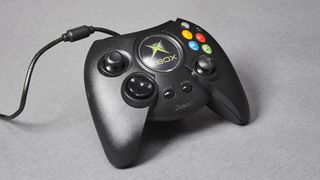
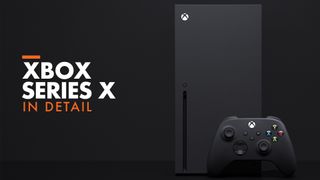
This article covers how it all started but where is the Xbox division now, two decades later? Xbox Series X In Detail covers everything you need to know about Microsoft's brand new next generation console.
"But in this small conference room, after months and months of meetings, Bill basically told Steve that we were just doing it, despite him being very upset about it, and that was the moment where I thought it was really going to happen.
"[People] have a strange view of Bill. First of all, Bill is a guy who takes huge risks and he has a great imagination. This is why he has these huge projects around the world, right? He is an adventurer, he's an intellectual adventurer, and there is no bullshit around him – he doesn't have time or tolerance for it. And of all the things, the thread that made me think we had a chance was always just the honesty required by Bill. Because we honestly didn't know how to make a console, but we honestly did know about games, and we honestly did believe in the market opportunity. We honestly did believe that Microsoft was like the only company that could take on Sony at the time, which was true. Because we honestly believed those things, we could go in and make presentations that had zero bullshit content.
"You'd have to sit in a meeting with Bill, and he's frighteningly brilliant. People throw around the word 'genius' all the time, and the way people say 'genius' is not accurate if you've met somebody who is a genius – somebody who, when you meet them, it seems like aliens are whispering in their ear because there's no way they could know these things otherwise. This is a different kind of a thing, and Bill's like that.
"So when people give presentations, Bill can smell the bullshit and he can see what's wrong with the technology and ask questions that will reduce people to tears. And we had no such fear. It was awesome. Bill has great imagination and a really adventurous spirit, and that's why he loved the proposal. I think the spirit we had of building something like the Xbox was really attractive to him for that reason.
[The story goes that the Xbox team misled Gates somewhat, suggesting for a time that the console would incorporate Microsoft's Windows operating system.]
"We absolutely, intentionally hoodwinked him. And I absolutely, explicitly in writing to him many times said that we were doing that at the time. You know, it's a big risk. If it's successful, he's going to be happy, and if not, then not as happy. But look, the reality is that, again, you need to remember that this is a company that doesn't understand games, let alone consoles. This is a company whose entire worth is based on this Windows operating system – they see the value of a computer as the operating system. OK, now, if you're an internal employee at that company and you want to pitch the value of a new platform, what argument do you use? You use the operating system.
"Now that doesn't mean that, as they think more about it as the project progresses, they don't come to understand it's not true, which is what happened. Windows was really not the value proposition on this any more. They had thought that before: 'Oh, we should make a Windows gaming platform – Windows will offer all these values...' Which is garbage, right? It's garbage, it is not true. No gamer gives a fuck about Windows features. But for the guys in Redmond, it was true. And you're not going to convince them. I mean, have you tried convincing your grandfather of something?

"The reason that the plan worked was very Sun-Tzu. We attacked the enemy where they were weak. And we did not attack them where they were strong."
Seamus Blackley
"So you just have to kind of surf it for a little while and swallow your pride and be cool with it until everybody learns enough that they see your argument. Kevin used to call it the Jedi mind trick. Eventually somebody would come back to you with your idea – they would say, 'Hey, you know, this doesn't need Windows at all'. And you have to control your urge to fucking kill them, because you've been telling them that for two years and now they finally come up with it like it's their idea. But that's the Jedi mind trick: 'These are not the droids we're looking for'; 'OK, this is not the operating system we need'. Bravo [applauds]. You're a genius, thank you for thinking of this. We never thought about that – we thought it should be Windows.
"I did very little competitive analysis. It made me feel really insecure because the developer organisation at Sony, the way the developers are supported, was so good. And Sony is a big consumer electronics company that knows how to do this. And our value proposition was not to compete with them directly in any of those places.
"The reason that the plan worked was very Sun-Tzu. We attacked the enemy where they were weak. And we did not attack them where they were strong. Our value proposition was not to out-PlayStation the PlayStation – our value proposition was to come out of the sun from a direction they didn't see. Because every PlayStation development kit ran off of a PC, right? Our attack was: hey, here is the box that the developers actually know how to use – we're going to make it into the console, and we're going to like snip the wire to the dev kit that you have and just make it the console. That's the attack.
"And so that doesn't require huge amounts of studying what they're doing. That requires studying how to make that PC architecture into an affordable-to-manufacture console. It wasn't about figuring out how Sony did it at all, it was about figuring out something new, which is how you break into a market if you really want to shake it up, which is what we did.
"I think Xbox's success was down to... you know, I will wax poetic. It was that it was a project driven by very pure passion from actual gamers inside of a big company that had the ability to make it go. But it was the purity of that vision that appealed to everybody, from developers to gamers. And it persists to this day.
"I'm very proud of all of this stuff that we did on Xbox, and of everybody who worked on it, and of Bill for taking the risk and Steve for getting over his concerns. All these people. I'm so proud of it, and them, and amazed. But the passion of the Xbox community, I mean, it's different than other game communities, it's different than other fandoms – there's an idea of, like, an honest love of super-pure gaming in a certain way. That's the core of it, which started on that plane flight and continued in every other conversation we had internally. And that's why it worked, because we kept that flame alive."
What happened next?
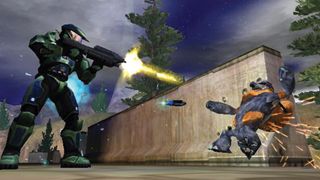
PlayStation 2 had the momentum, and would ultimately become the best-selling console in history, but this generation would see the battle lines redrawn entirely. As Sega crumbled under the weight of past mistakes, and Nintendo hung on grimly (while undergoing furious internal reinvention), there was a sense that the future of consoles could end up being merely the future of PlayStation.
Whatever else can be said about the Xbox design and philosophy, it was the company behind it that really mattered. Microsoft was a challenger that could take Sony all the way and, more importantly, wanted to. In 2020 the battle for control of the living room has long moved on from videogame consoles to encompass the likes of Google and Amazon, but in the late 90s and early 00s the concept of that 'one-stop multimedia device' loomed large in corporate strategy.
PS2 outsold Xbox by a wide margin, the former selling 100 million consoles by the end of 2005 (eventually tipping 150 million before discontinuation), the latter notching up around 24 million before being discontinued in favour of its successor. That figure was marginally better than Nintendo's GameCube – not bad for a first-timer, and certainly better than Sega's Dreamcast.

"Not only did Microsoft successfully establish a position in the console market, it also demonstrated that it could do certain things even better than PlayStation"
And not only did Microsoft successfully establish a position in the console market, it also demonstrated that it could do certain things even better than PlayStation. Key to future performance was its ability to outmatch Sony in the key battleground of online gaming, building the Xbox Live service and, more importantly, delivering quality exclusives that made use of it: no one had ever played something like Halo 2 on a Sony console before. And as the generation progressed it developed a string of valuable third-party relationships, reassuring industry partners that it was in it for the long haul.
Xbox's strength, over time, has proven somewhat different to how it was ever perceived. There's a tendency to label it the 'power' console of its generation, the brand obsessed with high-end specs and tech comparisons. There's some truth here, especially when it comes to the marketing, but what the original Xbox really showed was an ability to keep moving and evolving, a characteristic seen in every one of its predecessors. When it became clear that its jumbo-sized Duke controller wasn't winning any fans, Microsoft simply put its hands up, took the PR hit, and quickly released a redesigned model. And it introduced features such as friends lists, while developers such as Bungie beavered away on websites that integrated with the online console experience. Other innovations, such as custom soundtracks, were introduced more quietly, but they each deserve notice.
The Xbox 360 and Xbox One would both face problems, but the formative Xbox experience stood both consoles in good stead. It made the brand credible, inspired a passionate fanbase that continues to grow, and the philosophy was such that Xbox continues to evolve towards a future that may not even be very dependent on hardware at all. That wasn't all in the first box, far from it, but that unapologetic beast always hid its beauty beneath the surface.
Edge Presents Game Changers returns tomorrow at 5pm GMT / 1pm EDT and you can subscribe to Edge Magazine for only $2.77 an issue.
Edge magazine was launched in 1993 with a mission to dig deep into the inner workings of the international videogame industry, quickly building a reputation for next-level analysis, features, interviews and reviews that holds fast nearly 30 years on.
Most Popular


